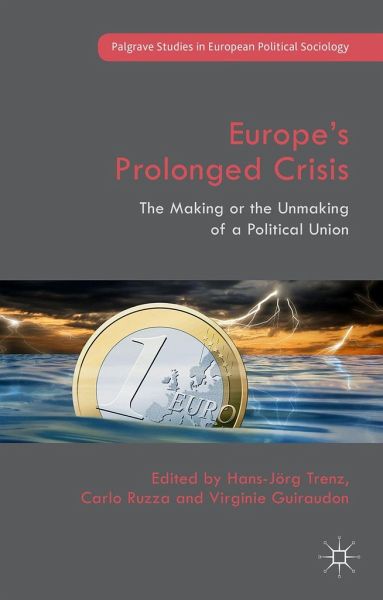
Europe's Prolonged Crisis
The Making or the Unmaking of a Political Union
Herausgegeben: Guiraudon, Virginie; Ruzza, Carlo; Trenz, Hans-Jörg

PAYBACK Punkte
19 °P sammeln!
This collection presents a political sociology of crisis in Europe. Focusing on state and society transformations in the context of the 2008 financial crisis and its aftermath in Europe, it observes a return of redistributive conflicts that correlates with a 'new politics of identity', nationalism, regionalism and expressions of Euroscepticism.














